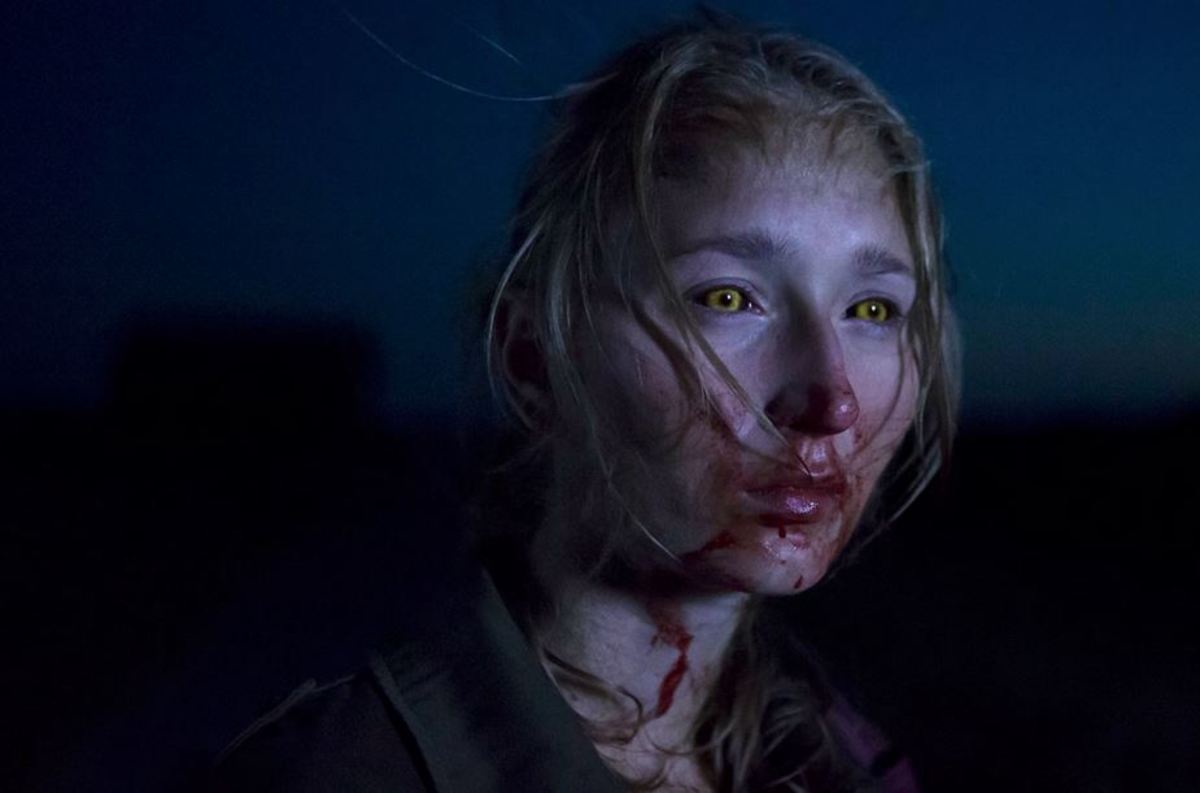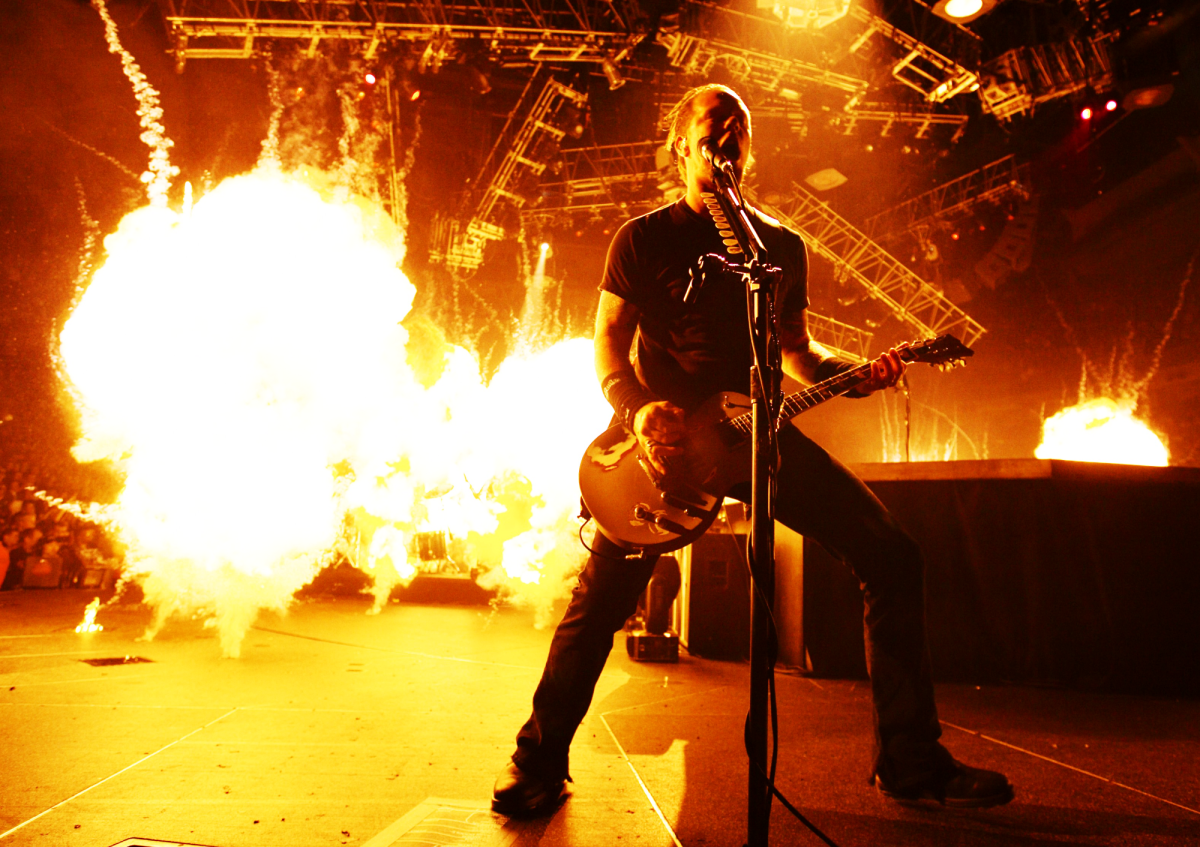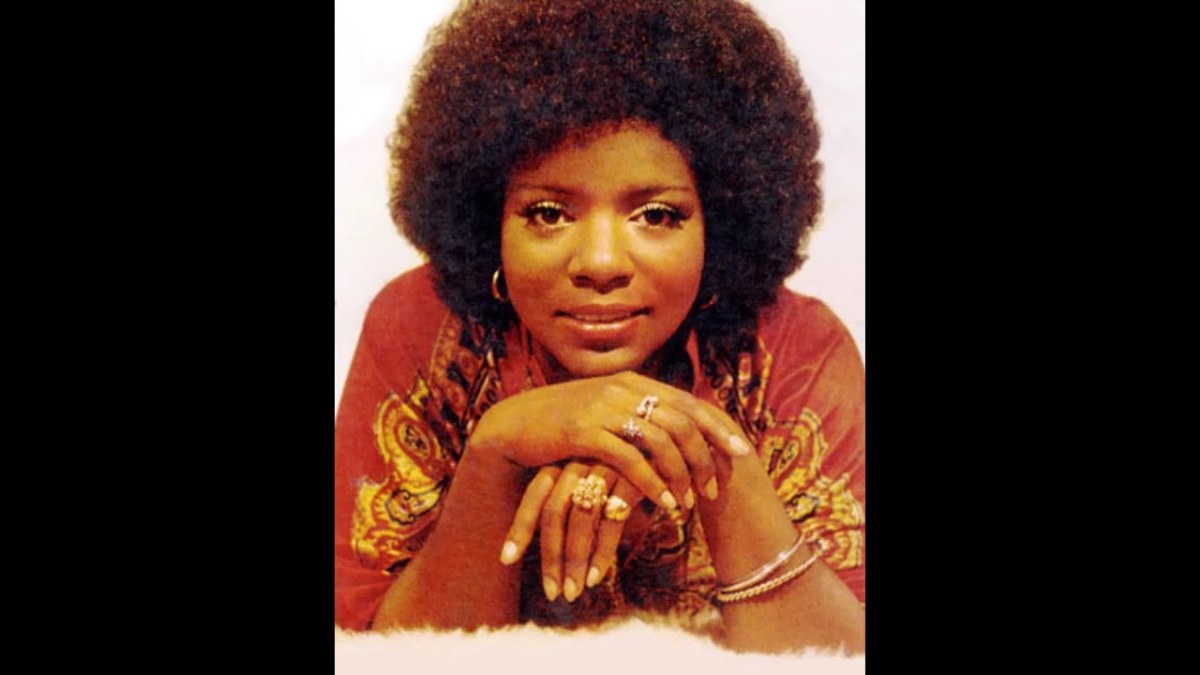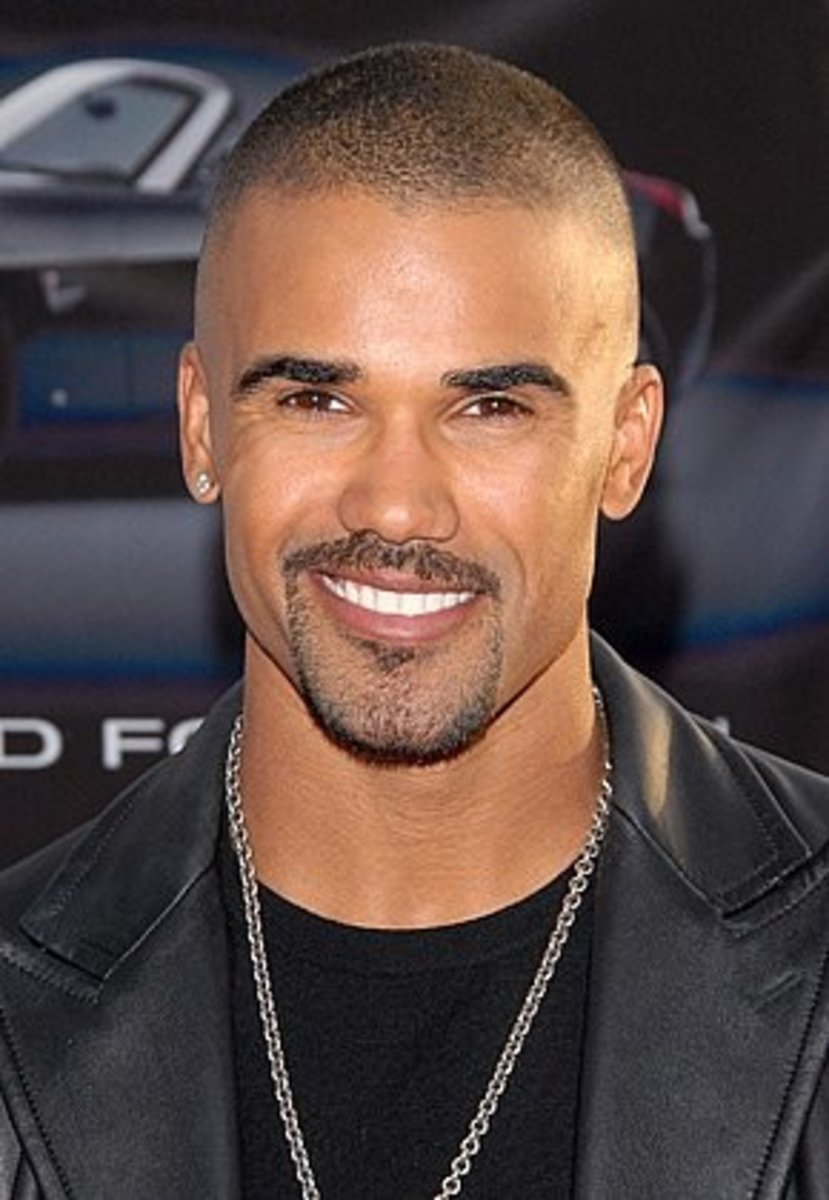The 10 Best Classic 60s Films You May Not Know About
If you love films then I am sure you will enjoy these somewhat overlooked classics. Now I know some people won't agree with my choices and that's fine, we all have different tastes, but I have chosen a wide variety so fingers-crossed you'll be intrigued enough to check these out!
Two Great Gunmen Joking Around
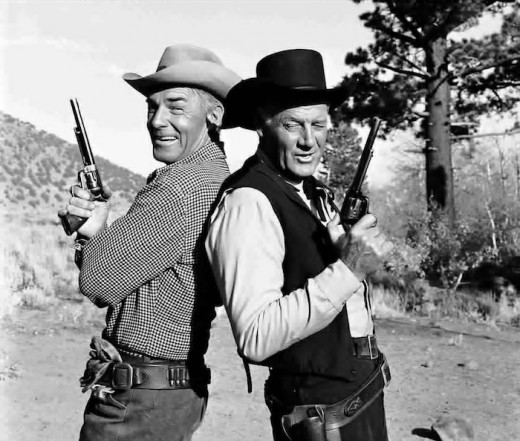
Ride The High Country
"I liked doing comedies, but as I got older I was better suited to do Westerns. Because I think it becomes unattractive for an older fellow trying to look young, falling in love with attractive girls in those kinds of situations... Anyway, I always felt so much more comfortable in the Western." Joel McCrea
10. Ride The High Country (1962)
Yes it's a western but before you tip your hat, aim at the nearest spitoon and mosey on to the next dusty town, this is no ordinary western. It's directed by the great Sam Peckinpah, the Tarantino of the genre, whose name is as synonymous with stylized violence and cynical yet brilliant film-making. So what makes this so great?
- It's not like his normal work in many ways. It's far more elegiac and has far more emotional depth and at its heart is the dynamic between the two older main characters.
- It's the first time screen legends Randolph Scott and Joel McCrea shared the screen together in the central roles and boy does it pay off having two such giants steering the film. It adds a poignancy to proceedings knowing these two fine actors are in the twilight of their careers, both forged in the western genre. The film was Scott's last and is seen as so note-worthy that it has been preserved in the National Film registry as being deemed "culturally, historically, or aesthetically significant."
9. Fail Safe (1964)
Directed by the great Sidney Lumet, responsible for such classics as Serpico, Network and 12 Angry Men. This film reunites him again with Henry Fonda playing the President of the USA trying to navigate his way through an impending disaster which could cause the death of millions. Like most of Lumet's work it has a strong moral edge and puts the viewer front and centre with the sweaty-palmed decisions needed by those in charge. So why did this make the list?
- It shows how differently things can be interpreted as it's taken from the same source novel as Dr Strangelove, but where that played it for satirical laughs, this takes a far more sombre and chillingly realistic tone.
- One of Walther Matthau's best roles and regularly overlooked, he plays the pragmatic voice of a key advisor requesting the unthinkable as the tension inevitably ratchets skywards. He shows the same steeliness and dramatic chops as he did in Charley Varrick and The Taking Of Pelham 123.
Fail Safe's Dramatic Dialogue
"I'm told that what we will hear at this end... will be a high, shrill sound. That will be the ambassador's phone... melting from the heat of the fireball. When we hear that sound... the ambassador will be dead."
Carrying On The Countdown
8. Purple Noon (1960)
A loose French adaptation of Patricia Highsmith's novel about the talented Mr Ripley. Although it doesn't stick as closely to the source material, the scenes on board the small sailing ship are reminiscent of those from Polanski's Knife In The Water, except rather than being filmed in stark black and white, it's in this vibrant, beautiful color. The effect is brilliant as it plays against the dark internal struggle of the main character with great satisfaction. So why should this rise above the others and not sink without a trace?
- The setting is far closer to the original novels in terms of period clothing and just the look and feel of the film, this adds an authenticity which can't be equaled. It feels like a film of its time precisely because it is. Highsmith purists may balk at the changes made, especially towards the end, but it's a film about Tom Ripley and it captures that character perfectly.
- It's the film which made Alain Delon a star. He is achingly handsome in this to such an extent the audience becomes mesmerised by him as the other characters soon become trapped in his lure, and this is crucial to the success of the film.
7. Lonely Are The Brave (1962)
Another western? Kind of. This is set in contemporary 60s America and Kirk Douglas plays the central character, a man against the tide of progress, more through circumstance than design. It's this being apart which is central to the whole film, as it deals with outsiders being forced effectively to join a society they feel out of place in. So why should I saddle up you ask?
- Two main reasons Kirk Douglas and, that man again, Walther Matthau. It's such an odd film in many ways that it's freshness is still there because of the great pairing of Matthau and Douglas, who don't share much screen time together but are central to the films success.
- It says more about counter-culture meeting straight society than any hippy exploitation film ever could, as well as neatly encapsulating the feeling of being left behind and misunderstood by the mainstream. There's no doubt whose sympathies the film lies with, is it the same for you?
6. The Night Of the Generals (1967)
A stellar cast lets you know you're in for a treat with this film which crosses genres and expectations. At its heart is a dogged German army Major who is unwilling to let go of a murder investigation concerned with a trio of implacable suspects. That the investigation is happening against the backdrop of WW2 is startling enough but that it has the confidence to span 30 years is its triumph. So why should I watch?
- Peter O'Toole, Donald Pleasance, Omar Sharif and Tom Courtney all star in the film and bring a rarely seen expertise across the board to this ensemble work. Sharif is excellent as the lead investigator getting ever nearer to the truth in a compelling role.
- A unique combination of historical drama playing out during a murder investigation or vice versa. The setting reminds the viewer of the horror going on at the time without having to show it and by focusing on an individual case illustrates how even the most villainous of deed can not go unpunished, or can it?
Claude Chabrol
| 50+ Films
| Multi Award Winning. No Academy Awards
|
|---|---|---|
Jean-Luc Godard
| 40+ Films
| Multi-Award Winning. Honorary Academy Award
|
Michael Powell
| 50+ Films
| Multi-Award Winning. Nominated For An Academy Award
|
Akira Kurasawa
| 30 Films
| Multi-Award Winning. Nominated and Honorary Award
|
"A story should have a beginning, a middle, and an end... but not necessarily in that order" Jean-Luc Godard
Down To The Top 5
5. Torn Curtain (1966)
A Hitchcock film which may have passed you by Torn Curtain happens at the height of Cold War paranoia, what better backdrop for the master of suspense? An American physicist defects to East Germany, but is everything as it appears? Written by a former member of British intelligence it exposes the lengths people would go to it for their home country. So Comrade why should I trek through the Siberian snow to see this?
- It's written by a real life spy called Brian Moore who worked for British intelligence. If anyone knows what really went on behind the scenes it's this man and the clever climax leaves one wondering what may have been.
- Paul Newman and Julie Andrews bring their star power to the film and there's a key scene which is sure to have you on the edge of your seat as East vs West in the most direct way imaginable!
4. Breathless (1960)
A classic of French New Wave cinema this shows how the French were so affected by American cinema they made they're own love-letter to it with Gaelic flair and great fluidity. A man on the run takes a student with him, will it lead to a daring escape from crime or will it be impossible to outrun fate? So what certain je ne sais quoi does this film have which warrants watching?
- Directed by Jean-Luc Godard and his first feature length film. If you love film and want to see how its influence extends across cultures this is for you. Without this there would be no Pulp Fiction, Tarrantino has even said he was directly inspired by an American remake of this film. So let's work that out. American cinema influencing French cinema, which in turn influenced American cinema again.
- The youthful energy encapsulated by this film, launched the star's career, and was nothing short of groundbreaking. It threw out the rule book and did things on its own terms combining lightning quick editing with explosive action to give a real sense of realized drama.
3. This Man/The Beast Must Die (1969)
One of Claude Chabrol's finest films. Who is Claude Chabrol you ask? Only the French answer to Alfred Hitchcock and just as gifted. This film is the perfect introduction to his work, dealing with a man seeking vengeance for the accidental death of his child. A psychological thriller which hinges as much on the nature of revenge as it does on families and loyalty put to the test. So why should I take action and watch?
- Based on a novel it's extremely well plotted and throws into stark relief the true nature of taking revenge in terms of seeing an act through. Could you kill if a loved one had died? Would you take those fateful steps outside of the law? Unlike your conventional Hollywood film where bodies fall every five minutes, this concerns one devastating act and its impact, and binds that struggle into a nerve-jangling thriller.
- The brilliance of this film is that no party is entirely innocent, in fact it shows how people are the biggest threat to each other and themselves. The two key male roles are played to perfection and the direction is exact, without being judgmental. This is a really difficult balance to achieve given the subject matter but shows Chabrol's brilliance and I would urge you to seek out this and his other films too.
2. Yojimbo (1961)
Films which are influential surpass their genre, they influence other artists who look back to them as well as forward and create something new, and no list would be complete without Akira Kurasawa. Quite simply one of the greatest directors to have ever lived, Kurasawa brought a unique Japanese perspective to cinema. He, like the French New Wave, had been in turn influenced by American cinema and in his case the peerless work of director John Ford. What Ford did with westerns Kurasawa did with samurai films and his work was so great it spawned countless direct imitations including the Fistful series and The Magnificent Seven. So why do you honor this film in particular?
- It stars Toshiro Mifune a former soldier and key actor for Kurasawa, his presence is a sign of great committment. In one of his Kurasawa films he had to stay perfectly still whilst a skilled archer fired arrows near him - talk about earning your paycheck that day!
- The film's plot has been re-worked countless times and used in many films, but there's still a freshness of approach and cleanliness of composition here which stands testament to the strength of the original.
Who's That At The Window?
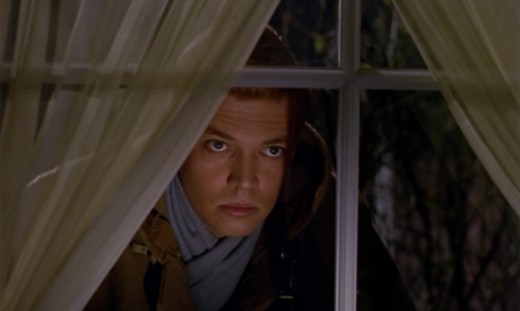
In The Top Spot
1. Peeping Tom (1960)
Top of the list is probably also the most controversial film on it, one which caused such outrage on its release it effectively ended the career of the great Michael Powell, one half of Powell Pressburger visionary British film-makers. Showing the descent of an apparently meek camera operator into depravity as he sets out to catch true horror on film, it's by no means an easy watch. So why should I look out for this horrow-show film?
- It's precisely because of it's subject matter that it shocked on release, but behind the surface there's an awful lot happening in this film. Obsession, paranoia, the willingness to push boundaries. It's content may seem tame by today's standards but what it still manages to provoke is that queasy unsettling feeling from the voyeuristic title character. There's an element of seeing into the crazed eyes of the director in its obsession and it retains lots of touches similar to Hitchcock, who Powell worked for early on in his career.
- Carl Boehm as the implacable murderer is brilliant and it's one of the first films to show the killings from the perspective of the murderer. It's also the first of the slasher genre now so pervasive. Don't be fooled this is a horror picture in the true sense, but the startlingly plot and imagery throughout make it one of the finest British films ever made a one championed by the great Martin Scorsese.
What would make your 10 best lesser known films of the 60s?
What's the most important thing to you in a film?
© 2019 Nathan Carter

